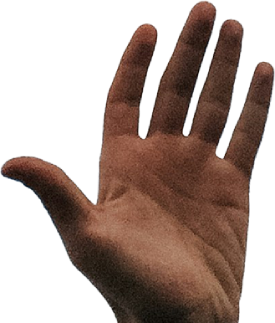Daily Habits That Strengthen Sobriety for Life
Lifelong sobriety isn’t achieved in a single moment—it’s built through consistent, intentional daily habits. For individuals beginning their recovery journey, especially those considering detox clinics in Los Angeles, understanding the power of daily routines is essential for lasting change. From morning rituals to evening reflection, each action you take helps rewire the brain, manage cravings, and support overall wellness.
Whether you’re supporting a loved one in recovery or taking your first step toward healing, these daily habits can serve as the foundation of a sober, fulfilling life.
Why Are Daily Habits Essential for Lifelong Sobriety?
Recovery isn’t just about quitting substances—it’s about replacing destructive behaviors with constructive, consistent patterns. Here’s why habits matter:
Neuroplasticity and the Science of Change
The brain’s ability to reorganize itself—known as neuroplasticity—plays a critical role in recovery. By practicing healthy behaviors regularly, individuals can reshape neural pathways, reducing the hold of addiction over time.
Reducing the Risk of Relapse
Structured routines lower the chance of relapse by minimizing idle time and eliminating unpredictability. When your day is planned with purpose, there’s less room for cravings to sneak in.
Emotional and Mental Stability
Daily habits bring a sense of order. This structure enhances emotional stability, reducing anxiety and depressive symptoms—common challenges in early recovery.
What Morning Routines Set the Tone for a Sober Day?
How you start your day sets the psychological tone for the next 24 hours. A well-structured morning routine builds mental clarity, motivation, and intention.
| Morning Habit | Benefits |
|---|---|
| Hydration | Replenishes the body after sleep and aids detoxification. |
| Mindful Breathing | Grounds you in the present, reducing morning anxiety. |
| Gratitude Journaling | Shifts focus from cravings to positivity and purpose. |
Healthy Breakfast for Recovery
- Oatmeal with chia seeds and berries (fiber + omega-3s)
- Scrambled eggs with spinach and whole-grain toast (protein + B vitamins)
- Greek yogurt with nuts and banana (probiotics + potassium)
Avoid excessive caffeine and don’t isolate yourself during the morning. Instead, reach out to a sober friend, join an online group, or simply walk outdoors.
How Can Mindfulness Practices Combat Cravings?
Cravings are inevitable—but they don’t have to win. Mindfulness helps you pause, observe, and act with intention instead of impulse.
Grounding Technique: The 5-4-3-2-1 Method
- 5 things you can see
- 4 things you can touch
- 3 things you can hear
- 2 things you can smell
- 1 thing you can taste
This method reconnects you with the present moment and calms the nervous system.
Helpful Apps and Local Resources
- Insight Timer and Headspace (meditation)
- MyLife Meditation (mood tracking + mindfulness)
- Check for local mindfulness meetups or yoga studios in Los Angeles.
Journaling Prompts
- “What emotion am I feeling right now, and why?”
- “What triggered this craving, and how can I respond differently?”
- “What’s one thing I’m proud of today?”
What Foods Support Physical and Mental Recovery?
Nutrition plays a surprisingly important role in addiction recovery. Substance abuse often depletes essential nutrients. Rebuilding your health begins at the grocery store.
Key Nutrients for Brain Health
| Nutrient | Function | Food Sources |
|---|---|---|
| Omega-3 Fatty Acids | Boost mood, reduce inflammation | Salmon, walnuts, flaxseed |
| B Vitamins | Improve energy, brain function | Leafy greens, eggs, lentils |
| Magnesium | Reduces anxiety, supports sleep | Almonds, bananas, avocados |
Meal Planning Tips
- Plan meals ahead to reduce impulsive choices.
- Keep healthy snacks accessible (nuts, fruit, hummus).
- Avoid sugary or highly processed foods that lead to mood crashes.
Check out ChooseMyPlate.gov for balanced diet guidelines tailored to your needs.
Why Is Exercise a Cornerstone of Sobriety?
Movement isn’t just for physical health—it’s a key ingredient for emotional resilience and long-term sobriety.
Benefits of Exercise in Recovery
- Releases endorphins that combat depression
- Regulates sleep and reduces stress
- Builds confidence and body awareness
Options for Every Fitness Level
- Walking around the neighborhood or LA’s scenic parks
- Yoga to combine breathwork and mindfulness
- Strength training to regain physical strength lost during addiction
Join sober-friendly fitness groups, or check for wellness meetups near Los Angeles like community hikes or outdoor fitness classes.
How to Build a Reliable Support Network
Recovery is not a solo journey. A supportive network can mean the difference between relapse and resilience.
Tiers of Support
| Support Type | Example |
|---|---|
| Peer Support | AA, SMART Recovery, local sober meetups |
| Professional Support | Therapists, recovery coaches, case managers |
| Family and Friends | With clear boundaries and mutual respect |
Finding Local Groups
Use SAMHSA’s Treatment Locator or local listings to find meetings and counseling services in Los Angeles.
Family Dynamics
It’s okay to set limits—even with loved ones. Family therapy or workshops can help loved ones understand your journey and support you appropriately.
What Coping Strategies Work Best for Sudden Cravings?
Cravings can strike out of nowhere. Being prepared can make the difference between resistance and relapse.
Effective Coping Techniques
- Urge Surfing: Visualize the craving like a wave—it rises, peaks, and passes.
- Distraction Toolkit: Create a go-to list (call a sponsor, paint, write music, cook).
- Crisis Contacts: Keep a printed or digital list of emergency support numbers.
Apps like SoberTool or I Am Sober offer daily motivation and tracking tools. Set up alerts or journal your triggers in real-time.
How Does Sleep Hygiene Influence Recovery?
Sleep is foundational in healing both the body and mind. Poor sleep increases emotional instability and risk of relapse.
Sleep Hygiene Tips
- Go to bed and wake up at the same time daily.
- Wind down with low light, calming music, or reading.
- Avoid screens and caffeine 2 hours before sleep.
If you’re struggling with insomnia, consult a healthcare provider. Sleep issues are common in early recovery and can often be managed with behavioral changes or short-term interventions.
How to Navigate Social Events Without Relapsing?
Social settings can be challenging—especially when others don’t understand your sobriety goals.
Tips for Staying Sober in Social Settings
- Have a Script: “No thanks, I’m not drinking tonight.” Keep it simple.
- Bring a Sober Buddy: Someone who knows your goals and will support you.
- Have an Exit Plan: Know when and how you’ll leave if you feel uncomfortable.
Sober-Friendly Activities in Los Angeles
- Outdoor movie nights
- Wellness cafes with mocktails or adaptogenic drinks
- Local art walks or poetry nights
Explore local event listings and choose sober-friendly activities that align with your new lifestyle.
Can New Hobbies Replace Old Habits?
One of the most powerful tools for recovery is rediscovering joy. New hobbies can fill the void left behind by substances.
Creative Outlets
- Painting, journaling, photography
- Learning a musical instrument
- DIY crafts or woodworking
Skill-Building and Volunteering
Enroll in a free online course, attend local community college classes, or volunteer at animal shelters or food banks. New experiences boost confidence and foster a sense of purpose.
Nature and Wellness Retreats
Southern California offers weekend getaways focused on yoga, detox, and meditation—perfect for reconnecting with yourself.
How to Track Progress Without Feeling Overwhelmed?
Sobriety isn’t about perfection—it’s about progress. Measuring growth helps maintain momentum and celebrate victories.
Tools for Tracking
| Milestone | Celebration Ideas |
|---|---|
| 30 Days | Dinner with loved ones |
| 60 Days | Personal gift or token |
| 90 Days | Share your story with a group |
Use apps like Nomo, Sober Time, or even a handwritten journal to track emotions, cravings, and triggers.
Reframing Setbacks
If a slip happens, avoid shame. Instead:
- Ask what triggered it.
- Reflect with your support network.
- Reset your intentions.
When Is It Time to Seek Professional Help?
Some challenges are too big to face alone. Recognizing the need for professional support is not a failure—it’s a strength.
Warning Signs
- Severe withdrawal symptoms
- Escalating cravings or impulsivity
- Isolation or losing interest in daily life
Role of Detox Clinics
Detox clinics offer medical oversight, structured environments, and holistic support to ensure your body and mind recover safely. For those in or near Los Angeles, clinics like Hollywood Detox specialize in personalized care, ensuring the transition into sobriety is supported every step of the way.
Integrating Professional and Daily Support
Daily habits reinforce what you learn in treatment. Combining detox care with outpatient therapy and community support increases your chances of long-term success.
Conclusion: A Journey Worth Taking
Sobriety isn’t a one-time decision—it’s a lifelong journey made of small, daily choices. Whether you’re just beginning or recommitting, remember that change is possible. With the right habits, support, and professional guidance, you can reclaim control and create a life filled with purpose, health, and joy.
If you or a loved one is seeking support, consider exploring detox clinics in Los Angeles, where personalized treatment and community resources can set the foundation for lasting recovery.
Take the first step. Speak to a healthcare provider like HollywoodDetox.com or reach out to local support networks today. Your future is worth it.

